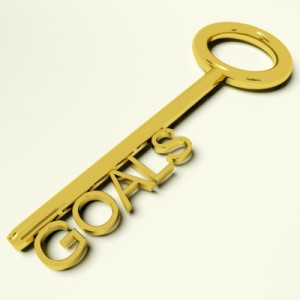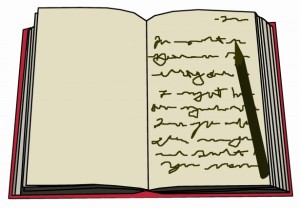A new year brings another set of goals to strive toward. Setting goals you want to achieve this year, before the end of January, will help set you up for success.
 I realised a long time ago that simply making the New Year’s resolution to be more productive was nothing more than wishful thinking. The key is to set clear goals and to outline steps to achieving those goals. If, like me, you have more things you want to do this year than are humanly possible in the hours, days, weeks and months of any given year, then it is vital that you identify your objectives and prioritise your key goals.
I realised a long time ago that simply making the New Year’s resolution to be more productive was nothing more than wishful thinking. The key is to set clear goals and to outline steps to achieving those goals. If, like me, you have more things you want to do this year than are humanly possible in the hours, days, weeks and months of any given year, then it is vital that you identify your objectives and prioritise your key goals.
My professional goals:
- Find a publisher for my novel
- Complete the two non-fiction books I began in 2013 and self-publish at least one as an eBook
- Write another novel
- Write another non-fiction book
- Continue to build my author profile
- Complete my freelance business website
- Continue to build my freelance business
- Learn more about marketing – for books and business
- Attend a conference and/or writer’s retreat
My personal goals:
- Do 30 minutes yoga at least 5 days a week
- Walk for 30 minutes a day for at least 5 days a week
- Tackle stairs for a minimum of 15 minutes a day (preferably 30) for at least 2 days a week
- Meditate at least 2 days a week
- Do 30 minutes of stretches at least 5 days per week
- Get back to being sugar-free (Christmas festivities took their toll!)
The next step is to outline how you will achieve your goals, allocate timeframes to each step and diarise these – this will keep you on track and give you a better chance of success.
My professional goals:
- Find a publisher for my novel: I have begun researching publishers and literary agents to identify those most suited to the genre of my novel. I have already begun work on a pack to send to them and have been and will continue to blog about this process.
- Complete the two non-fiction books I began in 2013 and self-publish at least one as an eBook – I have two non-fiction books mostly written. One needs more creation, the other needs research. I will set aside an allocated time each week to work on these.
- Write another novel – I have an idea for my second novel already. It is a loose collection of thoughts really. I have no plot to speak of, but do have two characters, a location and an era. I will allocate at least an hour each morning for creative writing.
- Write another non-fiction book – I have two ideas for forthcoming non-fiction books. I suspect one will be less time consuming and ‘easier’, the other will provide collaboration and a great learning opportunity. I have yet to decide which I will take on.
- Continue to build my author profile: continue to blog, Tweet and post to Facebook and LinkedIn. Also continue to explore Pinterest.
- Complete my freelance business website – this faltered over the Christmas period and it is a priority to resolve a few outstanding issues pertaining to the website.
- Continue to build my freelance business – the website is certainly part of this. I also need to consider marketing; and to explore any opportunities that might present themselves via my already established contacts.
- Learn more about marketing – for books and business. This is a research project in itself and I will blog about what I learn as I go.
- Attend a conference and/or writer’s retreat – I didn’t attend anything like this in 2013, but feel it is vital for my professional development and networking.
My personal goals:
- A writer’s life can often involve long hours at the computer. I have a plan that sees me getting out of bed at 6.30am for morning yoga and gives me several exercise breaks throughout the day. I don’t take a lunch break as such, so exercise breaks are welcome time out and help refresh my head!
Once you have listed all of your goals, don’t get overwhelmed by all that you want to do this year. You are not aiming to achieve them all at the same time – once you step them out across the whole year they will look much more attainable.
I’d love to hear what your goals are for the year and what you are doing to achieve them.
Image: ‘Goals Key’ courtesy of Stuart Miles / FreeDigitalPhotos.net


